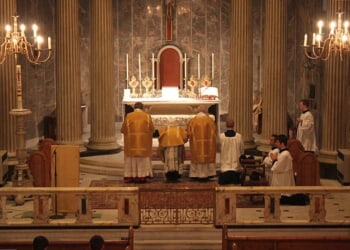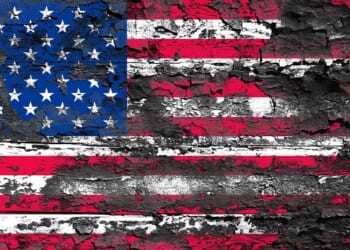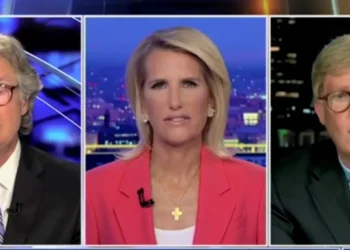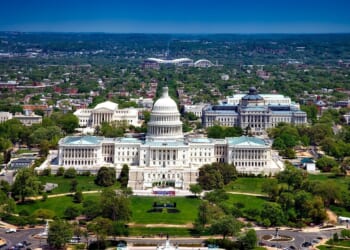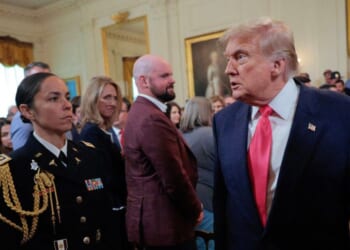The anniversary came and went just like the war itself: Forgotten.
In case you missed it too, June 25 marked the 75th anniversary of the beginning of the Korean War — the first hot front of the Cold War.
No ceremonies or any acknowledgment took place anywhere in Washington, D.C., other than Senate Resolution 304, which commemorated the anniversary and honored the sacrifices of war’s veterans and called the three-year Korean campaign “The Noble War.”
In contemporary America, gays, lesbians, bisexuals, transgender, queer, questioning, intersex, asexual, pansexual, nonbinary, two-spirit — well, you get the idea — get a month to celebrate, and woe to anyone who dismisses, or worse, criticizes such doings.
Meanwhile, the dying-off Korean veteran is shelved and forgotten — again.
Sandwiched between World War II and Vietnam, the Korean War lacked the triumphant narrative of the former and the cultural upheaval of the latter. The three-year fight in Korea began just five years after World War II and ended two years before Vietnam escalated, making it a transitional war rather than a defining one.
The U.S. suffered 36,574 casualties averaging over 1,000 every month of the war. I once made the mistake of referring to Korea as a “conflict.” My dad, a taciturn Korean War Marine Corps veteran, informed me very directly that Korea was no conflict, it was a war, and he didn’t want to hear it referred to as a conflict in his house again. This was highly out of character for Frank Maresca and a lesson I will never forget about preserving the truth of what my Dad and his fellow veterans endured.
I was determined to learn more about this war for which the Oct. 5, 1951, edition of U.S. News and World Report coined the expression “forgotten war,” but for many veterans like my Dad, the forgetting did not end in 1953. These veterans returned home to no fanfare and little support.
Korea was the first of a long string of American undeclared wars where rules of engagement were established by entrenched political bureaucrats who refused to use overwhelming force to win and then abandoned the surviving combatants when they returned.
For Korean War veterans, the war ended not with total victory, but with a ceasefire. Americans moved on with the Cold War and later Vietnam.
Enter the veterans of the Korean Demilitarized Zone — the Korean Defense veterans who serve today by patrolling mined terrain, intercepting infiltrators, and enduring sniper fire and ambushes, while rarely being recognized. The Korean DMZ is arguably the most militarized and volatile regions in the world. The armistice is put to the test, daily. Over 3.3 million troops have served in Korea since the ceasefire, with over 100 lives lost due to North Korean hostilities, despite Korean service being a “peacetime” assignment.
Korean DMZ veterans were also exposed to Agent Orange to clear fields of fire. These veterans were refused combat recognition, denied hazardous duty pay, and in many cases, prevented access to the full range of benefits due to the bureaucratic refusal to call what they consider a “conflict” — a war.
Since 1953, Korean service is downplayed for political reasons to project strength and stability in the region rather than its vulnerability. Admitting that over one hundred U.S. troops were killed or wounded on the DMZ does not align with U.S. foreign policy.
Post-armistice Korea is the “unknown war.” Those continuing to serve are awarded the Korean Defense Service Medal and earn membership in the Veterans of Foreign Wars.
For over two decades “Team Spirit” exercises were conducted by U.S. forces in South Korea that focused on combined readiness and deterrence. However, they were ended as part of diplomatic efforts to encourage North Korea to abandon its nuclear weapons program.
And everyone knows how that turned out.
Since then, “Team Spirit” has been replaced by other joint exercises.
The Korean War preserved South Korea and sanctioned its rapid rise as a global economic power while protecting a thriving post-war Japan from any Soviet threat.
Sadly, the war remains forgotten, with Americans still on the front lines of a precarious ceasefire that has held with Frank Maresca’s granddaughter serving there today 72 years after he departed.


![Former Bravo Star Charged After Violent Assault Using a Rock-Filled Sock in Tennessee Walmart [WATCH]](https://www.right2024.com/wp-content/uploads/2025/07/Former-Bravo-Star-Charged-After-Violent-Assault-Using-a-Rock-Filled-350x250.jpg)



![Illegal Alien Walked Free After Decapitating Woman, Abusing Corpse for Weeks [WATCH]](https://www.right2024.com/wp-content/uploads/2025/07/1753013138_Illegal-Alien-Walked-Free-After-Decapitating-Woman-Abusing-Corpse-for-350x250.jpg)
![NYC Man Snatches Child Off The Sidewalk, Parents Chase Him Down [WATCH]](https://www.right2024.com/wp-content/uploads/2025/07/NYC-Man-Snatches-Child-Off-The-Sidewalk-Parents-Chase-Him-350x250.jpg)
![Karoline Leavitt Levels CNN's Kaitlan Collins and Other Legacy Media Reporters [WATCH]](https://www.right2024.com/wp-content/uploads/2025/07/Karoline-Leavitt-Levels-CNNs-Kaitlan-Collins-and-Other-Legacy-Media-350x250.jpg)
![Man Arrested After Screaming at Senators During Big Beautiful Bill Debate [WATCH]](https://www.right2024.com/wp-content/uploads/2025/06/Man-Arrested-After-Screaming-at-Senators-During-Big-Beautiful-Bill-350x250.jpg)

